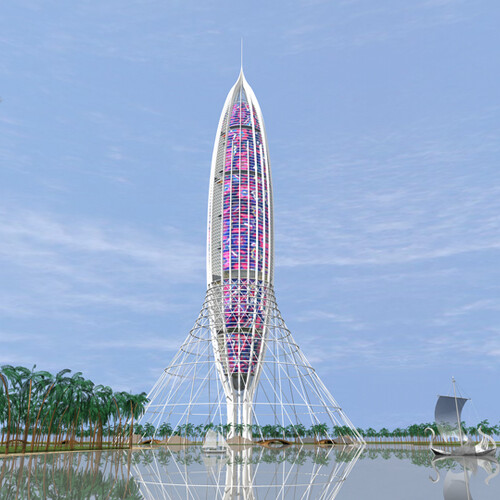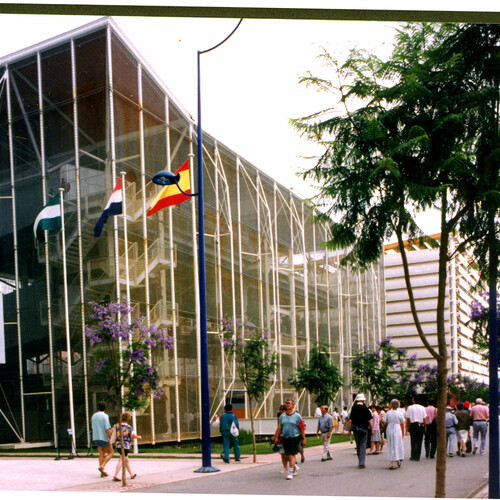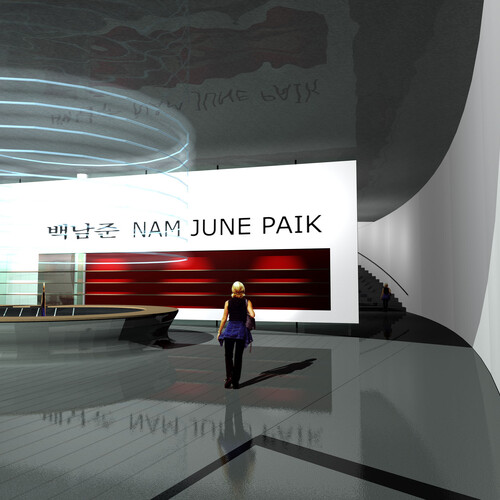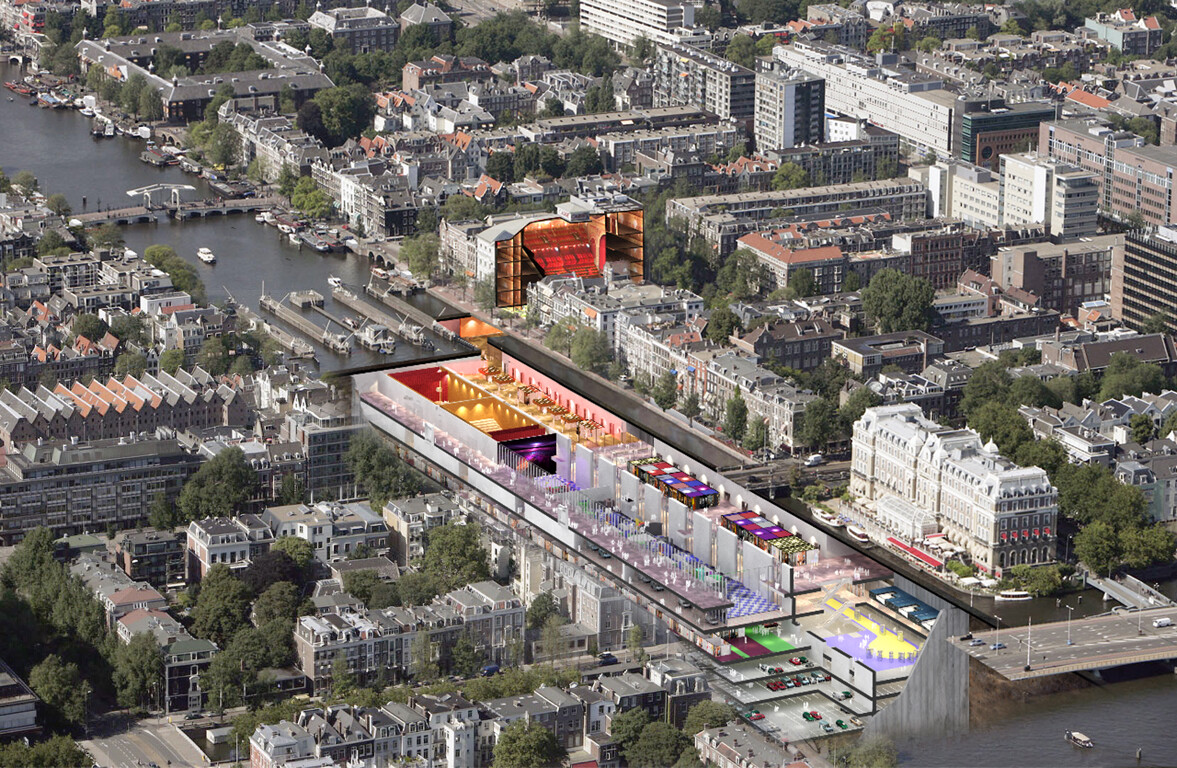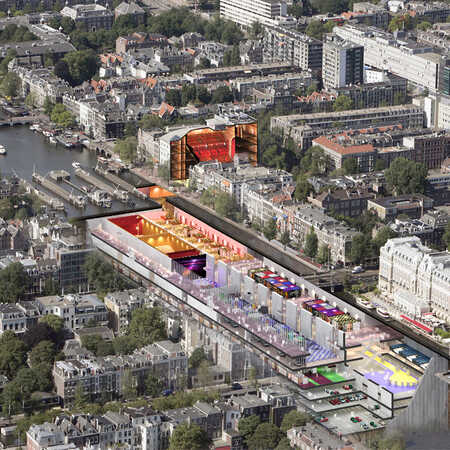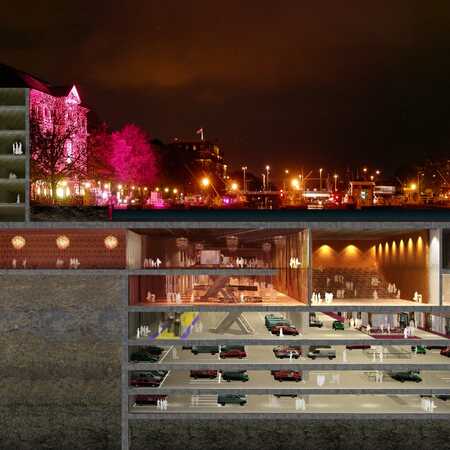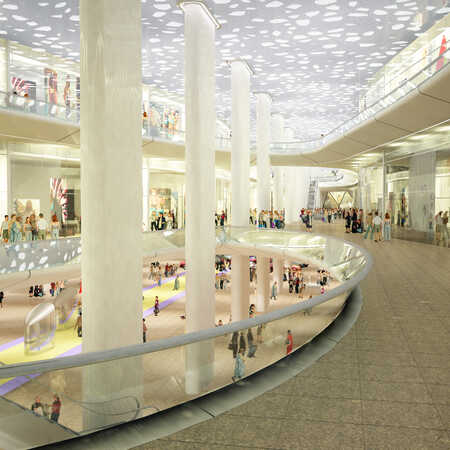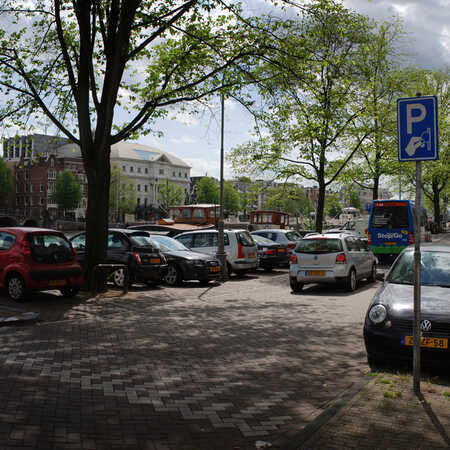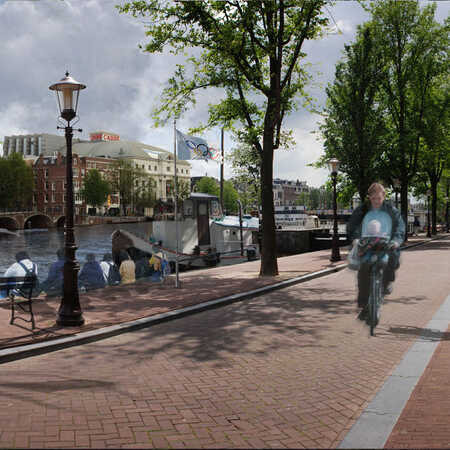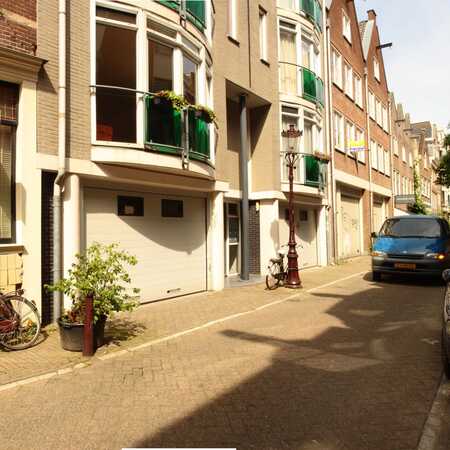0453
Gallery
A visionary plan
The old Amsterdam, built in a swampy delta next to an arm of the sea, is a city in the water. Using modern building techniques, its huge number of square metres, roughly a million, can be tunnelled effectively and safely. Tunnelling could deliver considerable relief for the overburdened city centre.
Back in 2010, together with Strukton, architectural studio ZJA developed a plan for building underground, not just to give cyclists, pedestrians and green spaces more room, but to add desirable new facilities. In the plan, called AMFORA (Alternatieve Multifunctionele Ruimte Amsterdam), technical issues that preoccupy the city are also resolved and improved, including the need for installations for energy distribution at ground level, the limited space for pipes and cables, and the maintenance of the quay walls. AMFORA uses tunnelling to make space for residents and visitors to the city and to improve the quality of life. In 2010 the design for AMFORA Amstel won the MIPIM Future Award, in the Big Urban Projects category.
On the Amstel
Where the River Amstel flows through the old city centre, many functions are performed at street level that might be better placed underground. Think of storage, garages, workplaces and technical installations. Space would thereby be created for the hospitality sector, shops, and appropriate facilities that are currently missing.
Artis, the Hortus Botanicus, Carré Theatre, the Stopera, university buildings, famous hotels and museums all lie a short distance from this part of the river. The reduction in car traffic and increase in underground parking alone would make an immense difference to the streetscape. But underground spaces, which could be built as many as six levels deep, also provide nearby institutions with opportunities to expand. They might include archive space for the Dutch National Bank, additional lecture theatres for the university, another foyer at the Carré Theatre, or more conference rooms under the Amstel Hotel. There might also be a shopping centre, a cinema complex and tennis and padel courts, or a gym.
Transport and energy
The part of the Amstel where AMFORA could be made a reality lies right between two metro lines, the Noord-Zuidlijn and the Oostlijn, and might easily serve to connect the two. It could include a people-mover system, linking two stations underground.
AMFORA Amstel has been designed as an energy-neutral project. The newly built space and the use in it of what is known as concrete core activation could take both the underground facilities and the buildings above ground a big step towards sustainable energy use and the cooling of the city. Concrete core activation is a technique in which the capacity of concrete to store heat or cold is exploited by means of built-in water pipes.
The design of the experience
The large scale of the underground development of AMFORA Amstel necessitates careful consideration of the spatial experience of its users. Poorly organized, dimly lit and low-ceilinged spaces underground have a disagreeable effect. Nobody wants to feel they have ended up in an underground labyrinth. So in the design everything is focused on clear views and orientation. Dead-end spaces are avoided, while openings offer a view of several levels and consolidate visitors’ natural sense of direction. The choice of lighting, colours and materials is even more important than in a building above ground. High-quality materials, such as stone and stainless steel, and the use of green contribute to a pleasant feeling for anyone using the six underground levels. Above-ground landmarks such as bridges and famous buildings are used to help people orientate underground.
AMFORA Amstel contributes to a greener and healthier city with more open space that is comfortable and lively, without compromising accessibility or provisioning.
Awards
Winner: MIPIM Future Projects Award 2010, Big Urban Projects category
Architect: ZJA
In collaboration with: Strukton
Year: 2010
Project: #453
Related
